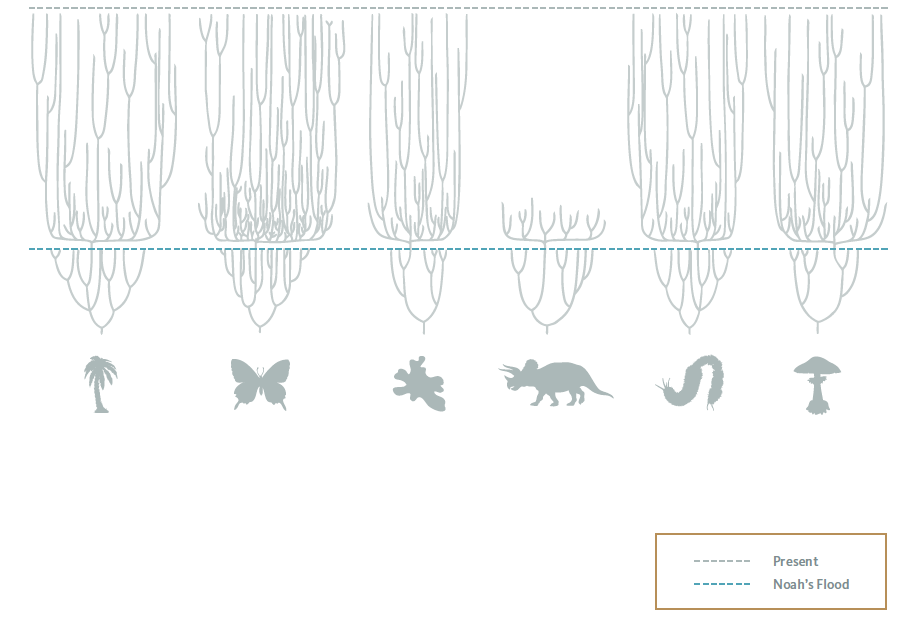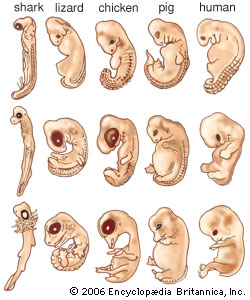@Yehren --
This article quotes Darwin and explains the dilemma of understanding cell complexity much better than I can. I had to split it into 2 posts, so here is the conclusion of the article: A strong case, then, can be made that the cell has turned out to be a lot more complicated than Darwin or his contemporaries imagined. Not only did they vastly underestimate the complexity of the cell, but it’s probably vastly more complex even than we imagine today.
No, Scientists in Darwin’s Day Did Not Grasp the Complexity of the Cell; Not Even Close
Casey Luskin
June 6, 2013, 4:59 AM
Recently a reader of ENV wrote to me asking whether it’s true that in Darwin’s day, scientists thought that the cell had a simple structure. The reader had argued on an Internet forum that back then, scientists vastly underappreciated the complexity of the cell — especially compared to what we know today. Some Darwin-defenders responded to him by claiming that Darwin believed the cell was indeed “complex,” and quoted Darwin as
saying:
A cell is a complex structure, with its investing membrane, nucleus, and nucleolus, a gemmule, as Mr. G. H. Lewes has remarked in his interesting discussion on this subject (Fortnightly Review, Nov. 1, 1868, p. 508), must, perhaps, be a compound one, so as to reproduce all the parts.
This quotation of Darwin was then followed by the customary attacks on ID proponents, calling us ignorant, deceitful, or worse, for claiming that scientists of Darwin’s era misunderstood and/or dramatically misunderstimated the complexity of the cell. I suppose that somehow this is supposed to bolster the ability of Darwinism to explain the complexity of the cell.
Well, let’s take a closer look at that quote from Darwin. He said that the cell is “complex,” in part, because it has a “membrane, nucleus, and nucleolus.” It’s no surprise that Darwin knew about these cellular components, because they were visible to microscopes of that time. But does this mean he really appreciated or anticipated the complexity of the cell?
The answer is a resounding no. Consider the article that Darwin approvingly cites in that quote, the one by G.H. Lewes in Fortnightly Review. Lewes serves as Darwin’s authority for the claim that the cell is “complex,” so let’s start by looking at what Lewes
said about the protoplasm in that very article:
The simplest form of organic life is not — as commonly stated — a cell, but a microscopic lump of jelly-like substance, or protoplasm, which has been named sarcode by Dujardin, cytode by Haeckel, and germinal matter by Lionel Beale. This protoplasm, although entirely destitute of texture, and consequently destitute of organs, is nevertheless considered to be an Organism, because it manifests the cardinal phenomena of Life: Nutrition, Reproduction, and Contractility. As examples of this simplest organism we may cite Monads, Vibriones, Protam�b�, and Polythalamia. Few things are more surprising than the vital activity of these organisms, which puzzle naturalists as to whether they should be called plants or animals. All microscopists are familiar with the spectacle of a formless lump of albuminous matter (a Rhizopod), putting forth a process of its body as a temporary arm or leg, or else slowly wrapping itself round a microscopic plant, or morsel of animal substance, thus making its whole body a mouth and a stomach; but these phenomena are as nothing to those described by Cienkowski, who narrates how one Monad fastens on to a plant and sucks the c

rophyl, first from one cell and then from another; while another Monad, unable to make a hole in the cell-wall, thrusts long processes of its body into the opening already made, and drags out the remains of the c

rophyl left there by its predecessor; while a third Monad leads a predatory life, falling upon other Monads who have filled themselves with food. Here, as he says, we stand on the threshold of that dark region where Animal Will begins; and yet there is here no trace of organisation.
So protoplasm — which we now call “cytoplasm” and know to be full of cellular organelles, molecular machines, RNA molecules, enzymes, and numerous other crucial biomolecules — is considered by Darwin’s favored authority on the subject to be the “simplest form of organic life,” which is a “microscopic lump of jelly-like substance” that is “destitute of texture” and “destitute of organs” with “no trace of organization.” This same authority believed a eukaryotic organism like a Rhizopod is little more than a “formless lump of albuminous matter.” Not exactly a ringing endorsement or appreciation of the complexity of the cell.
It gets even worse when you read Mr. Lewes’s
simplistic descriptions of the nucleus or the cell membrane. He writes:
Now let our glance pass on to the second stage — the Cell. Here we have the first recognised differentiation of structure, in the appearance of a nucleus, or attractive centre, amid the protoplasm. The nucleus is chemically different from the substance which surrounds it; and although perhaps exaggerated importance has been attributed to this nucleus, and mysterious powers have been ascribed to it, yet as an essential constituent of the Cell it commands attention. Indeed, according to the most recent investigations, the definition of a Cell is “a nucleus with surrounding protoplasm.” The cell-wall, or delicate investing membrane — that which makes the Cell a closed sac — is no longer to be regarded as a necessary constituent, but only as an accessory.
So the nucleus, which we now know to be the information control center of the cell containing chromosomes and much of the genetic information — billions of bits in some cases — necessary to form an organism, is of “exaggerated importance,” having “mysterious powers.” Meanwhile, the membrane is called “only as an accessory” that isn’t even necessary to the definition of a cell.
So if we take Lewes’s definition of a cell as “a nucleus with surrounding protoplasm,” and combine it with his prior description of protoplasm, then we see that a cell is a:
structure of “exaggerated importance” with “mysterious powers” surrounded by the “simplest form of organic life,” which is a “microscopic lump of jelly-like substance” that is “destitute of texture” and “destitute of organs” with “no trace of organization.” This is what Darwin’s favored authority on the complexity of the cell said about the complexity of the cell. Not exactly an anticipation of the cell’s true complexity.
But what about Darwin’s citation of the gemmule? Does this help show he had an accurate understanding of cellular complexity? A gemmule is, of course, a now-discredited concept. Darwin had an inaccurate understanding of inheritance, and believed something similar to Lamarck’s long-abandoned view about the inheritance of acquired characteristics. Though I’m generally wary of citing Wikipedia, it
correctly explains that “gemmules were imagined particles of inheritance proposed by Charles Darwin as part of his Pangenesis theory.” Darwin invented gemmules as a mechanism of explaining blended inheritance. His theory turned out to be wrong: gemmules don’t exist. So if someone is trying to claim Darwin had an accurate understanding of the cellular complexity, gemmules aren’t a good place to start.
Of course, neither Darwin nor Lewes is to be faulted for getting these things wrong. It’s obvious that in their time knowledge of molecular biology and cell structure was extremely primitive compared to 2013.
Continued in next post




 rophyl, first from one cell and then from another; while another Monad, unable to make a hole in the cell-wall, thrusts long processes of its body into the opening already made, and drags out the remains of the c
rophyl, first from one cell and then from another; while another Monad, unable to make a hole in the cell-wall, thrusts long processes of its body into the opening already made, and drags out the remains of the c